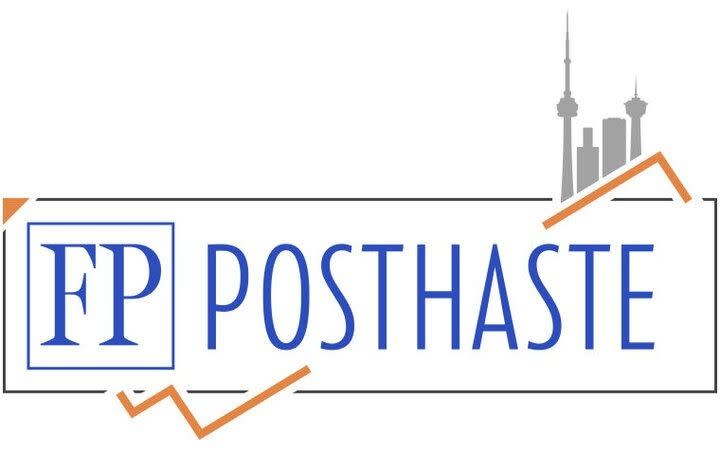Posthaste: For debt-laden Canadians this could be the darkness before the dawn


This could be the darkness before the dawn.
After almost two years of punishing interest rate hikes and high inflation, Canadians’ attitudes about their debt sank to its lowest level in the most recent MNP Consumer Debt Index.
“Canadians’ current debt perception has reached an all-time low, with the impact of inflation and higher interest rates leaving them feeling the most pessimistic about their current debt situation,” said the insolvency firm’s quarterly survey.
According to the poll, 63 per cent of respondents are concerned about their ability to repay their debt. In a separate survey by Nanos, half of Canadians said they were worried about making their mortgage payments.
“The added pressure of holiday bills coming due, mortgage renewals approaching, costs continuing to increase, and you can see how many Canadians could be approaching a crisis point both mentally and financially,” said Grant Bazian, president of MNP Ltd.
Relief will come. The Bank of Canada paused rate hikes in September, and many economists believe that’s it for this cycle. But when rates will start to ease and by how much is another question.
Optimism soared at the end of 2023 that this would happen sooner rather than later, but the new year has brought a “sober reassessment of rate cut prospects,” said BMO chief economist Douglas Porter.
Jobs data out Friday showed inflation concerns aren’t gone yet. Wage growth accelerated to 5.4 per cent, two percentage points higher than overall inflation and “far too hot for the Bank of Canada’s comfort,” he said.
A “flash of strength” in the housing market in December could also be an unwelcome reminder to the central bank of last spring’s rebound.
“That short-lived revival in housing activity was probably a key factor in pulling the Bank off the sidelines and back into the tightening game, so we are highly sensitive to signs that housing may be stirring,” said Porter.
All Canadians can do is wait, but that wait is becoming increasingly painful.
Canada’s household debt is the highest in the G7 and the latest data show that Canadians are putting a record amount of their disposable income toward servicing debt, most of it from rising mortgage payments.

The number of Canadians opting to just make the minimum payments on debt has jumped over the past two years, says MNP. Twenty-six per cent said they just pay the minimum on their credits cards, up five percentage points from 2021.
Eighteen per cent say they have borrowed money they can’t afford to pay back quickly, up seven percentage points from two years ago.
Another worrying sign is that Canadians are finding their finances stretched just to get by. One in five say they have needed to take money from home equity or registered savings plans to make debt payments or day-to day expenses, the MNP poll found.
“Put simply, most things cost more, debt repayment costs more and that leaves more feeling pessimistic about paying off debts, making ends meet and about their financial futures on the whole,” said MNP’s Bazian.
_____________________________________________________________________
Was this newsletter forwarded to you? Sign up here to get it delivered to your inbox.
_____________________________________________________________________


Canadians learned the slowing economy may finally be catching up with the labour market Friday when data showed virtually no growth in jobs in December. Up until then job gains had been surprising strong in the face of weak GDP growth, but that may now be shifting, said BMO chief economist Douglas Porter.
Wage growth, however, remained a hot spot. Average hourly wages were up 5.4 per cent from a year ago, well above overall inflation, which is not good news for the Bank of Canada. This and strong job numbers in the United States should keep the Bank “very patient on the rate cutting front,” said Porter.
Today’s Data: U.S. consumer credit
Get all of today’s top breaking stories as they happen with the Financial Post’s live news blog, highlighting the business headlines you need to know at a glance.

Colliers Canada CEO sees ‘wonderful’ opportunities in commercial real estate this year
Taxpayers’ strange excuses don’t sway courts after CRA denies CERB, CRB eligibility
Claudine Gay resignation may signal the beginning of the end of the woke DEI cabal
Worried about having enough for retirement? Do you need to adjust your portfolio? What’s the best strategy for your CPP, Old Age Security and RRSP money? If you have these questions and more the crack team at FP Answers led by Julie Cazzin can help. Read more from FP Investing.
Bank of Canada needs to avoid this mistake in 2024, says CIBC
Canada's downturn could be worse than other advanced nations
Today’s Posthaste was written by Pamela Heaven, @pamheaven, with additional reporting from The Canadian Press, Thomson Reuters and Bloomberg.
Have a story idea, pitch, embargoed report, or a suggestion for this newsletter? Email us at posthaste@postmedia.com, or hit reply to send us a note.
Bookmark our website and support our journalism: Don’t miss the business news you need to know — add financialpost.com to your bookmarks and sign up for our newsletters here.

 Yahoo Finance
Yahoo Finance 



